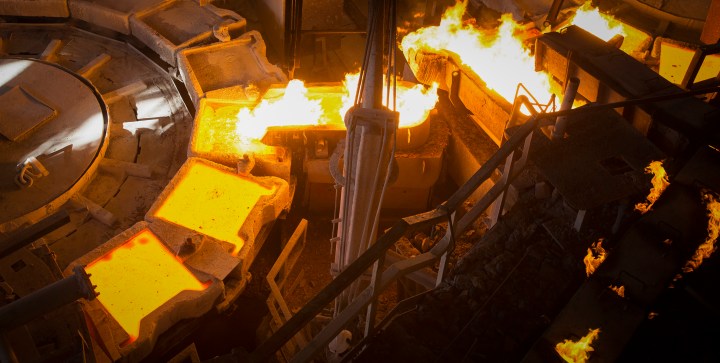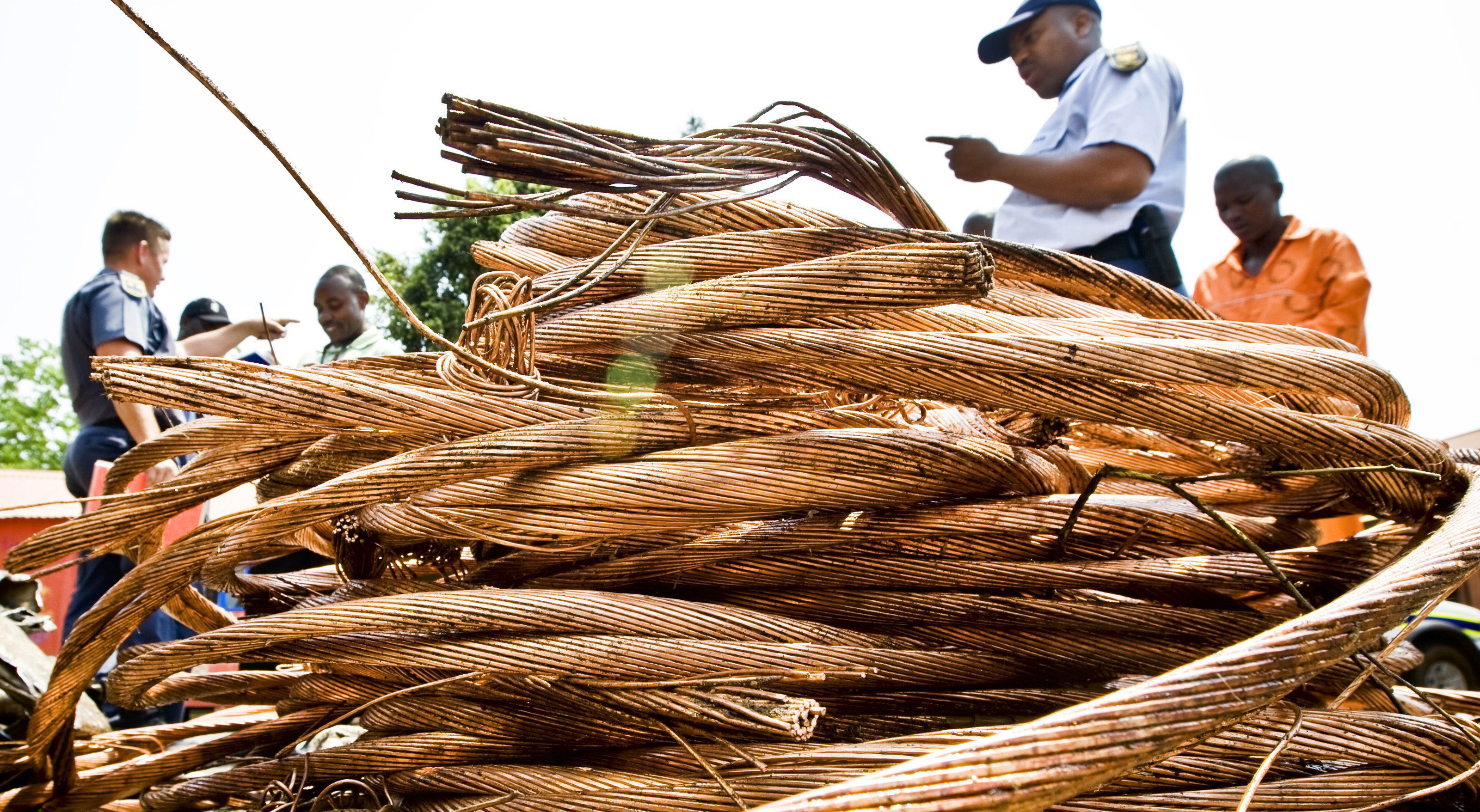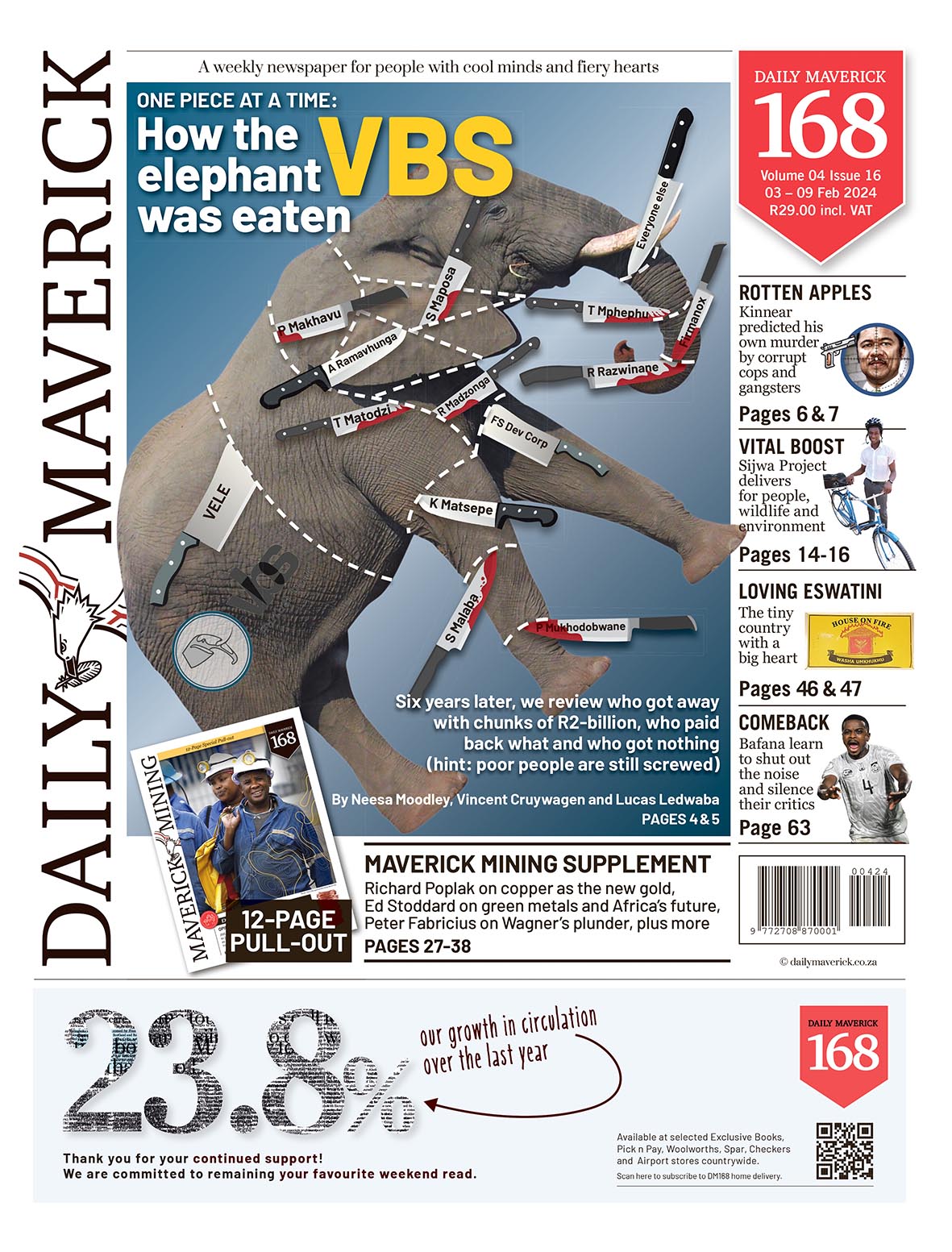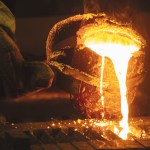ANALYSIS
Copper is king in the world of mining

The metal’s value cycle has been extremely volatile for a long time, but right now it is soaring and mining companies around the world are scrambling for land and licences. In South Africa, however, it is mainly mined by theft from the railways.
Copper is the new gold. Wait, gold is the new gold, but copper is better. Copper is the new bitcoin, but bitcoin is (mostly) bust. Copper is… it’s just, new again, man. And it’s killing it.
The point, I guess, is that if one were to ski the peaks and valleys of the copper commodity cycle since the turn of the century, the result would be very sore knees.
Mining houses that held copper reserves in 2000 were struggling to divest, until, of course, the Chinese supercycle started to send prices northwards.
By July 2007, the commodity was selling for $3.65 a pound, whiplashing miners who had been punting it for under a buck just seven years previously.
Then, after a little bank called Lehman Brothers decided to shit the bed, copper plunged, rose to new heights, swooned again and, in the depths of the pandemic, began another stealth Stairmaster workout that took analysts by surprise. (When it comes to copper, analysts are always surprised.)
Why all the drama? Supply and demand, baby. Truth is that outside China, no one really needed copper for anything much.
Infrastructure building in the West had reached saturation and governments were deep in the austerity bin. In South Africa, copper was mined unconventionally, mostly by stealing it from the railway system and ripping it out of other people’s houses.

Copper cables confiscated by Pretoria police. Seven alleged cable thieves were arrested. (Photo: Supplied)
Large, successful miners like Barrick Gold Corporation, which bought up copper in an ill-advised diversification strategy in the early zeroes, couldn’t convince shareholders that they’d made good bets.
As the price languished, they were forced to kill their diversification strategies. But then, after the Chinese supercycle began to slow, murmurings of the so-called green transition began to drown out other conversations at mining conferences.
The green transition is a relatively hilarious euphemism for zero-emission energy production, which isn’t green so much as it is different.
Anyway, to be human is to be filthy, so copper is the new king, a key component in new gizmos and doodads to power us into our looming apocalyptic future.
Barrick is an interesting test case. Under its legendary late chair, Peter Munk, it made a play for a promising property called Reko Diq, in Balochistan, Pakistan.
Balochistan is the kind of place that the CIA calls “restive” – with a robust separatist movement, a native population that hates the mandarins in Islamabad, and a few terrorists bobbing about. It has also experienced the blunt end of the climate crisis, especially during a recent bout of catastrophic flooding. It is remote, dangerous and inaccessible.
Those are the good points.
The story goes like this. Before the turn of the century, US-incorporated mining company BHP entered into a joint venture with the Balochistan Development Authority (BDA), a public corporation in the impoverished province, via the Chagai Hills Exploration Joint Venture Agreement, to prospect for gold and copper in the Chagai district and, in the event of favourable discoveries, to seek a mining licence. BDA held a 25% ownership interest, with BHP owning 75%.
In 2000, BHP assigned the prospecting rights to an Australian company, which created Tethyan Copper Company Pakistan (referred to as TCC), as its wholly-owned subsidiary for the project.
In 2006 an outfit called Antofagasta acquired TCC for $167-million, and sold half to Barrick Gold. Soon after the purchase, however, the original JV agreement with BHP was challenged in Pakistan’s courts. The new conglomerate began prospecting Reko Diq.
On 6 November 2010, Pakistani attorney M Tariq Asad filed a constitutional petition before the Supreme Court of Pakistan against the federal government to force it to refrain from issuing what he states is an arbitrary and unlawful mining licence that lacks consultation. Additional petitions were filed by various local politicians.
About a year later, TCC notified the government of Balochistan that it wanted to buy the government’s 25% interest in the Reko Diq project to pursue the project as the sole participating party. The government rejected the request.
TCC told the government a denial of the mining lease would deprive it of investment in Reko Diq and would constitute an expropriation, according to an Australia-Pakistan treaty.
As the relationship with the government broke down, TCC filed its request for arbitration with the secretary-general of the International Centre for Settlement of Investment Disputes (Icsid).
In 2017, the centre handed down its decision to reject Pakistan’s final defence against liability in the case, stating that the country had violated several provisions of its bilateral investment treaty with Australia.
In July, it ordered Pakistan to pay TCC $5.9-billion in damages, including all costs associated with the arbitration.
Pakistan later applied to annul the Icsid award of $5.9-billion to TCC for the denial of the mining lease, citing alleged defects in the award and a failure to apply Pakistani law to corruption allegations.
Randgold resources
But that hasn’t really worked. And in 2019, Barrick merged with South African Randgold Resources, led by a tough-guy Hemingway character named Mark Bristow, who got things rolling again.
Bristow peered into his crystal ball and saw… copper. As gold bobbed and weaved around the $1,900 mark – historically high, but not so great when compared to post-pandemic inflation – Barrick began to work on the problem of kicking Reko Diq into production, with mounting urgency.
The green transition means that, of the 700 million tonnes of copper mined by humanity so far, at least as much will need to be mined by the end of this century. That is the definition of a seller’s market. For most miners, it means what was impossible in years past is now completely feasible.
It means almost no property is off the table, including Reko Diq, which Bristow has assured shareholders will happen.
These are the lengths miners will go to for copper. There are, of course, limits. In South Africa, a country with almost no rule of law, little electricity and a government hostile to anyone who hasn’t recently invaded Ukraine, this latest boom is unlikely to touch sides.
That’s sad because copper is king. Remember that when you plug in your Porsche. Which South Africans can’t. Because there are no plugs. DM
This story first appeared in our weekly Daily Maverick 168 newspaper, which is available countrywide for R29.




















Great story, but you didn’t mention the biggest copper cockup of the lot – the $10 billion Cobre Panama mine that FQM have been booted out of by various environmental and political players.
400000 tons of copper per year staying underground. (For now)